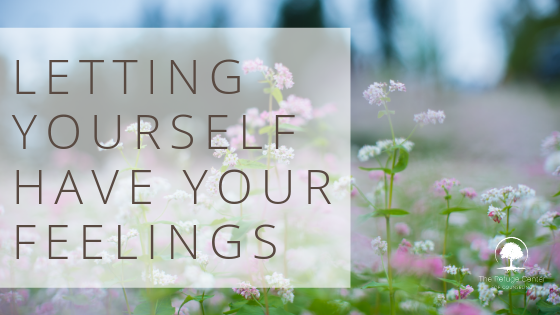“We are continually defining, constructing, and reinterpreting who we are as we meet life in our moment-to-moment interactions.” – Alison Strasser
In my work as a therapist, and experience as a human, I have noticed the tendency within myself and others to feel as though momentary moods or circumstances somehow serve as binding predictors for the future. Yet, from my perspective, such a feeling or outlook often does little to motivate us toward change and may even blind us to progress that has been made in spite of the challenges we have faced. Interestingly, a great deal of research has demonstrated that we – as people – tend to sell ourselves short when considering what our lives will look and feel like in the future. In fact, this human phenomenon has even been given a name… The End of History Illusion (Quoidbach et al., 2013).
When measuring the personalities, values, and preferences of more than 19,000 people who ranged in age from 18 to 68, psychologists discovered that young people, middle-aged people, and older people all believed they had changed a lot in the past but would change relatively little in the future. In other words, despite being different people today than they were yesterday, participants reportedly believe that who they are in this moment is who they will be for the remainder of their lives. As a result, “If people find it difficult to imagine the ways in which their traits, values, or preferences will change in the future, they may assume that such changes are unlikely. In short, people may confuse the difficulty of imagining personal change with the unlikelihood of change itself” (Quoidbach et al., 2013, p. 98).
Can you see how such a thought process might impact either the hope we have of the future or the degree of confidence we have in ourselves to bring about meaningful change?
Ask yourself the following questions and see where your mind takes you:
1. What did my life look like ten years ago? What was I doing? Who was I with? How did I feel?
2. What does my life look like today? What responsibilities do I have that I didn’t before? How do I feel? What is new and what is missing?
3. What will my life look like ten years from now? Who will I be? What will I believe? Who will be there with me? How will I feel?
A Theory on Why we Tend to Think This Way
Considering how common it is for people such as you or me to place so much importance on the present moment, I cannot help but wonder what shared experience may have contributed to this tendency of ours. While one person’s life may look entirely different than another’s, I believe there are aspects across life today that may shine some light on how we’ve found ourselves in such a predicament of prediction.
Perhaps most impactful of all, is the influence that societal and familial expectation or pressure can have on the way we view ourselves and where we ought to be both personally and professionally. Within the United States, for instance, there exists the expectation that we begin considering our future career from a very young age. Even as adults, many of us might find the first question out of a new acquaintances mouth to be, “what do you do?”
And while it may seem insignificant at first glance, I invite you to consider how such an emphasis on deciding your career at an early age might have impacted your feelings toward work in the present. That is, could the idea that we must know ourselves well enough by the age of 10 to decide what career we will love by the age of 40 potentially create – within us – the belief that what job we are working today ought to be the job we have tomorrow?
I wonder how differently we might view ourselves were we to have been taught that who we are and what we enjoy at any given moment could evolve as we learn more about ourselves from moment-to-moment.
Thus, our society says, “know who you are” and “know what you want to do” as early as possible. At home or school, perhaps with the best of intentions, your parents/educators/mentors may have taught you to “make it work” and “don’t complain.” Lessons which seem to stifle exploration and curiosity rather than instill confidence and elevate hope. Afterall, while it may not be the preferred method of every individual, our complaining about something may serve as the way we communicate our needs and concerns.
Consequently, and cognitively, these lessons may serve as the foundation upon which we build our life as it is unfolding. In another manner of speaking, we feel inclined to build our lives according to the design plans provided to us by those who appear to have had it all figured out. As a result, we begin to view the future as predictable or even predetermined rather than allowing for (or acknowledging) the possibility that we are perpetually engaged in a process of becoming different versions of ourselves as we adapt to the unexpected situations that life is often full of. In many ways, when we tell ourselves “this is who I am” or “this is how I feel” – we are really saying “this is who I will always be” and “how I will always feel.” And if that is true, then it must also be true that life will remain the same.
Thoughts/Perceptions/Beliefs –> feelings –> Behaviors
Life doesn’t get better –> Hopelessness –> negative self-talk/inaction
BUT….if you answered the questions above, especially when reflecting upon how your life looked and felt a decade ago, does the sentiment that life never changes (in any regard) still feel logical? Could it be that, as you’ve experience more and more of life, you’ve found yourself becoming someone different than who you started this journey as? Perhaps even a version of yourself that you didn’t expect to become.
Lastly, if some of what you believe about yourself is a result of ideas and expectations taught or modeled by others, can you – here and now – make a choice to learn something new?
How Can We Tackle this Troublesome Thinking?
Perhaps we try on a new perspective! Kind of like going to an eye doctor and having our prescription updated; except, instead of someone else handing you the prescription, you get to decide for yourself what looks and feels right.
One perspective, or approach, that I like to invite those I work with to explore is that of Happenstance Learning Theory (HLT). Although it is predominately used when working with those struggling to navigate career related concerns, I have found many of its principles can be applied to life across contexts!
According to its originator, John Krumboltz (2009), “HLT posits that human behavior is the product of countless numbers of learning experiences made available by both planned and unplanned situations in which individuals find themselves. The learning outcomes include skills, interests, knowledge, beliefs, preferences, sensitivities, emotions, and future actions” (p. 135). When we live our lives according to the “default setting” beliefs instilled within us by society and/or those that raised us, we have that aforementioned tendency to focus our attention exclusively on factors over which we have no control. That is, believing that we are bound by fate and have no choice in the matter. On the other hand, when we focus exclusively on our own successful actions, we may find ourselves overconfident in our own “powers” (to an unhelpful degree). That is, believing that we are the sole source of change. When applying the ideas of HLT, however, we are invited to recognize the balance between what we can change and what changes in spite of us. Every situation, therefore, may be seen as presenting potential opportunities – if only we can recognize and capitalize on them.
“Now,” you say, “tell me more about the ‘planned’ part of HLT.” That is, what can I or YOU do to “capitalize on” those “potential opportunities?” … Well, I’m glad you’re so curious!
Fortunately, as it so happens, Happenstance Learning Theory outlines five qualities that can help us make the most of chance opportunities:
1. Curiosity: Be curious about the opportunities and outcomes that could come from engaging with new interests, people, and events. Your exploration could bring about beautiful change.
2. Persistence: Expect that obstacles will pop up on your path. Stay persistent and surround yourself with supportive people who can help you overcome challenges. Determination is a strength, use it!
3. Flexibility: Keep an open mind and be flexible with changing attitudes and circumstances. It’s okay to change, adapt, or even create new plans! Allow yourself the freedom of going back to the drawing board. You don’t start from scratch when one plan doesn’t work out, you start with new data to use within the experiment of life!
4. Optimism: View new opportunities as attainable and assume that good things can/will happen. Instead of “I can’t do this because…” try approaching a challenge by saying “How can I do this?” Remind yourself…there is value in every experience, and you’ve made it this far!
5. (Healthy) Risk-Taking: Get outside of your comfort zone! Try not to let either rigid certainty or hopeless uncertainty stop you from taking action. By trying new things, you can learn new lessons. Not taking action guarantees no opportunities for change!
Most importantly…
While it may be comforting to feel certain about the future, because certainty means no surprises…I encourage you to give yourself permission to believe in even the possibility that – in spite of any pain, confusion, or predictive thinking – the version of yourself that you woke up as today is in the process of becoming better equipped for answering the challenges of tomorrow. This process was happening every day before today, and now I invite you to participate.
If you and/or someone you know is feeling confined to a way of life that no longer serves who you/they want to be, then consider stepping outside of your comfort zone or adjusting your plans by reaching out to The Refuge Center for Counseling. A process of positive change could start TODAY.




